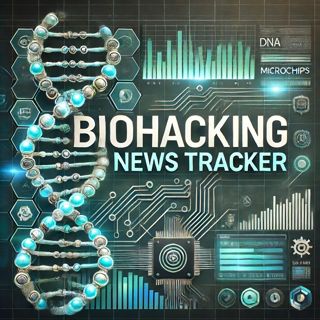
Biohacking Boom: Optimizing Health, Performance, and Longevity
Biohacking has become a prominent trend among those seeking to optimize their health, enhance performance, and perhaps most intriguingly, extend their lifespan. This practice intertwines technology, b...
26 Syys 20242min

"Biohacking: Pioneering the Frontiers of Science and Challenging Religious Notions of Immortality"
Biohacking represents a striking frontier in contemporary science, intertwining biological research with the hacker ethos of exploration and innovation. Biohackers, individuals or groups engaged in th...
24 Syys 20242min

Biohacking Poised to Dominate Wellness Trends by 2025
Biohacking has become a cutting-edge confluence of biology and self-improvement, growing substantially in popularity and sophistication, and is poised to dominate conversations around wellness trends ...
22 Syys 20243min

Biohacking: Empowering Individuals or Raising Ethical Concerns?
Biohacking, a term that blends biology with hacking, describes a wide array of practices that aim to manipulate biology to enhance the body's performance, optimize health, or alter one’s biological ma...
21 Syys 20242min

Biohacker Dave Asprey's Sleep Optimization Routine Pushes Boundaries
Biohacking has taken wellness to a new frontier, with advocates like Dave Asprey leading the charge. Synonymous with applying systems thinking and self-experimentation to optimize human functioning, b...
19 Syys 20243min

"Biohacking Boom: Customizing Health and Beauty from Genetics to Skincare"
Biohacking, often referred to as DIY biology, is an emerging practice in the wellness and health industries where individuals apply the hacker ethic to enhance their body's natural functionality. This...
17 Syys 20243min

"Biohacking GP Blends Traditional and Modern Medicine to Enhance Skin, Brain Health"
Biohacking has been gaining traction among those seeking to optimize their health and wellness by using science and technology to make precise, guided modifications to their body’s physiology. One sig...
15 Syys 20242min

"Biohacking: The Frontier of Personal Health Optimization"
Biohacking represents an emerging frontier in the realm of personal health and wellness, where individuals take an active, hands-on approach to manipulate their own biological systems. The goal is to ...
14 Syys 20243min





















